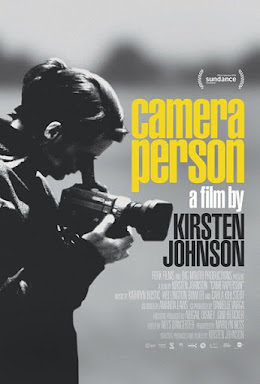Documentary cinematographer
Kirsten Johnson’s life has been as much about images on diverse sociopolitical
subjects as it’s been about the places around the globe she’s visited and the
people she’s photographed. Her feature-length diary film Cameraperson was a distillation of these myriad subjects, places,
people and images, culled from the string of award-winning documentaries she’s
been associated with; and, in turn, a dizzying mosaic and collage on themes as
complex, prescient and extraordinarily stirring as war and ethnic cleansing,
governmental overreach and extrajudicial measures, racial hatred and bigotry,
violence on women and children, PTSD and memory, women’s agency and voice, etc.,
with running feminist subtexts. Hence, the fact that she asks the viewers, at
the beginning to consider this as her memoir indicated the indistinguishability
between the political and personal dimensions of her life and profession. The sequences
and footage can perhaps be classified into four categories – 1) powerful
political episodes covering systematic sexual violence against Muslim Bosniak women
by Serbian paramilitary forces during the Yugoslav Wars and wrenching reminiscences
of the dark episodes by survivors and investigators, a half-blinded Afghan boy recounting his
brother’s death, a public prosecutor briefing on the ghastly murder of James
Byrd by white Texan supremacists, detainees in Guantanamo and a Yemen prison, etc.;
2) striking social vignettes like a Nigerian midwife struggling to keep a
premature baby alive, a young African-American girl trying to cope with single
motherhood, Liberian women defiant against patriarchy, etc.; 3) apolitical
asides like a boxing match in Brooklyn, a CERN astrophysicist philosophizing on
matter and anti-matter, cameo by Derrida, etc.; and 4) personal moments from Johnson’s
life covering her twin daughters and her mother’s affliction with Alzheimer’s.
Director: Kirsten Johnson
Genre: Documentary/Diary Film
Language: English
Country: US


No comments:
Post a Comment